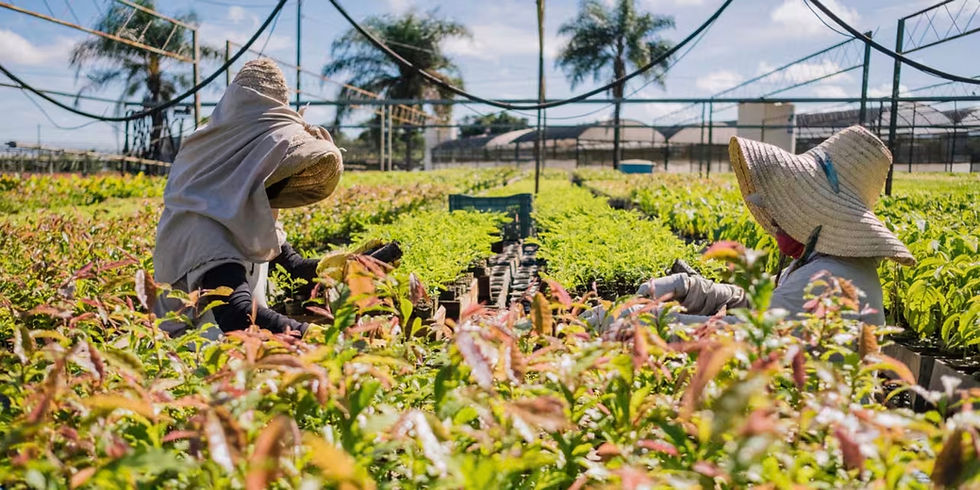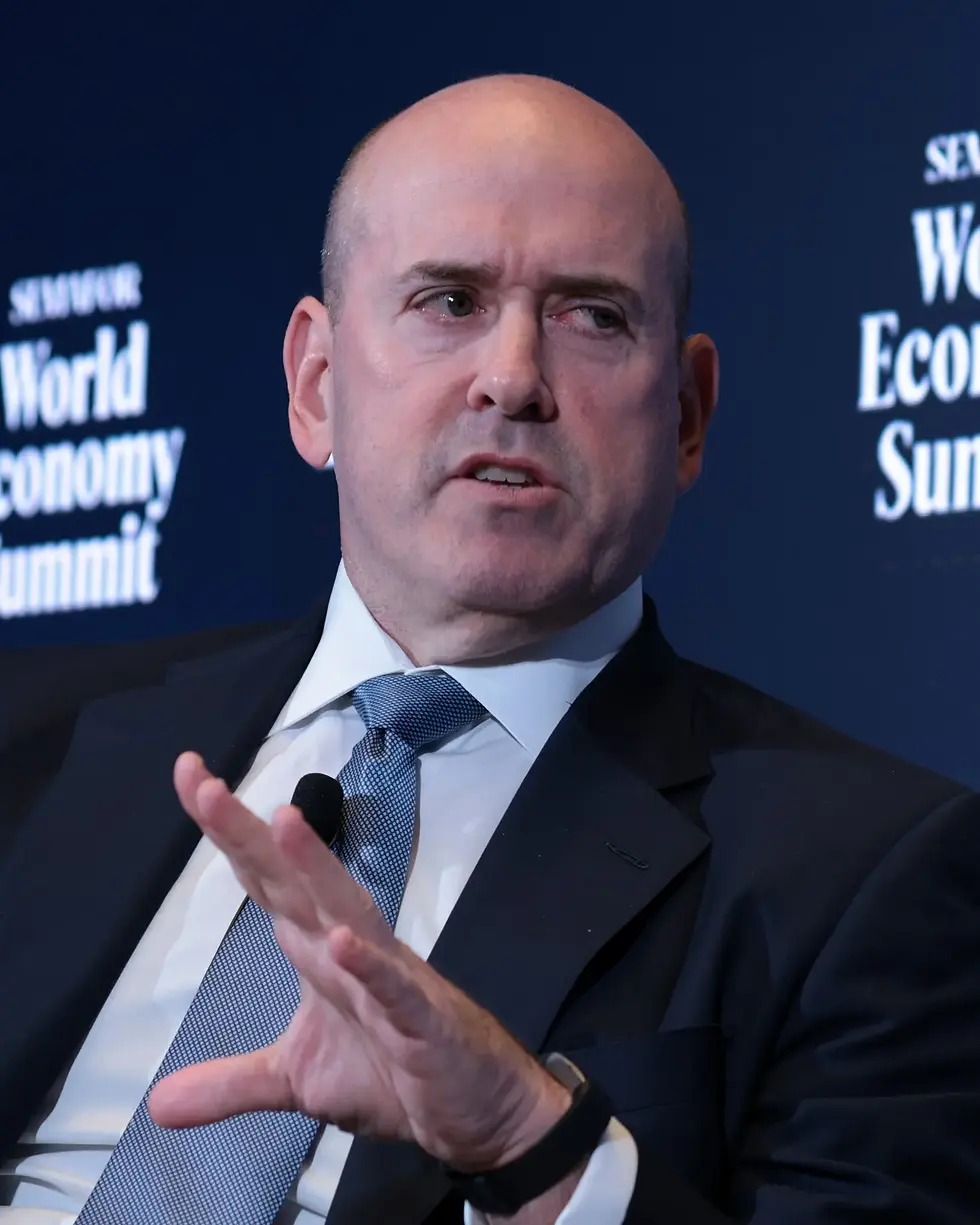Leading Economists and Policymakers Push for Higher Integrity in Carbon Markets
- Serena Valentino
- Sep 26, 2024
- 5 min read
By H. Claire Brown and Yusuf Khan | Sept. 25, 2024 5:30 am ET|WSJ Pro

Mark Carney, Michael Bloomberg and other economists and philanthropists tout carbon markets as one of the key ways of reaching net zero
Voluntary carbon markets are getting the backing of some of the world’s leading economists, policymakers and philanthropists, as businesses search for ways to meet their climate goals and move funds to developing countries.
On Wednesday, U.N. Special Envoy on Climate Action and Finance Mark Carney and billionaire philanthropist Michael Bloomberg are expected to lend their support to various carbon market initiatives in a bid to help provide integrity to the troubled market. Bahamas Prime Minister Philip Davis has also voiced optimism about the market.
“Get this right and carbon markets can provide hundreds of billions of dollars of finance each year to emerging markets,” Carney, a former governor of the Bank of England, said.
Carbon credits have been beset by uncertainty and scandal in recent years and, as a result, sales slumped dramatically in 2023 and 2024. “In the voluntary carbon market specifically, for years you’ve had an oversupply of credits that are perceived as low quality, meaning they never actually led to any carbon avoidance or removal,” said Kyle Harrison, head of sustainability research at BloombergNEF.
“On top of this oversupply, you had a market that, until recently, had no attempt at centralized coordination. Developers, registries, marketplaces and brokers all had their own rules to create credits, price them and sell them. This led to a very opaque market with huge inconsistencies in pricing and quality, with no proper governance,” he added.
In theory, voluntary carbon markets allow participants to reduce their emissions by purchasing credits that fund projects that remove greenhouse gases from the atmosphere, with one credit equal to one ton of carbon dioxide removal.
In response to the concerns about quality, supporters of the market have launched myriad ratings firms, standards-setting bodies and auditors in the hope of rebuilding trust with corporate and government customers.

The industry has placed its hopes on a handful of densely acronymed organizations and efforts—ICVCM, VCMI, GCMU and the CCP, to name a few. The big dream is that these collective plays for legitimacy, boosted by support from big names in finance and government, will create enough trust in the fledgling market that it will survive while leaving bad actors in the rearview mirror.
For example, ICVCM, or the Integrity Council for the Voluntary Carbon Market, aims to set the bar as to what counts as high-integrity carbon credits, establishing thresholds for what could be considered fit for purpose. The Voluntary Carbon Markets Integrity Initiative, or VCMI, meanwhile will provide guidance for companies and nonstate actors on how those credits can be used.
Still, it remains a tall order. In their endeavor to develop a high quality carbon credit, ICVCM, VCMI and others are essentially trying to create a cap-and-trade system with no cap, a tax with no government involvement, an entirely new financial product from thin air—that too, for a commodity that is intangible. Whereas government-regulated carbon markets account for about $100 billion in annual transactions, voluntary markets currently sit closer to $1 billion.
“Voluntary carbon markets have the potential to help us move faster in the fight against climate change, but only if they operate with integrity and transparency,” said Michael Bloomberg, the billionaire philanthropist who is also the U.N. Secretary-General’s Special Envoy on Climate Ambition and Solutions. “By working across the public, private, and nonprofit sectors, this group can help bolster confidence in these markets, which will help build stronger economies and healthier communities.”
On Wednesday, ICVCM, VCMI and GCMU will launch an initiative as part of Climate Week NYC with the aim of providing integrity to carbon market schemes. “We’re coming together because we need to demonstrate the voluntary carbon market has an important role to play in mobilizing finance in climate action,” said Mark Kenber, executive director of VCMI.
With proper safeguards in place, the annual value of voluntary carbon markets could be $1.2 trillion by 2050, BloombergNEF said in a report earlier this year, but it could also be as low as $34 billion if “companies can’t trust the quality of the credits they’re buying and have no financial incentive to do so.”
“Even if a surplus of low-quality credits remain in circulation, so long as buyers can differentiate the good from the bad, they will have far more confidence to make large-scale purchases,” said BloombergNEF’s Harrison. He added that better infrastructure would be needed to actually trade credits. “There are a slew of exchanges, marketplaces and derivatives products popping up in the market today, the next step will be some level of consolidation of these different groups so trading takes place in a centralized way.”
Whole Foods Market chief executive Jason Buechel said that having a coalition of suppliers or a set of standards like those seen in animal welfare would be a good first step in building integrity. “At the same time, this is an area that involves a lot of stakeholders and we want to make sure that folks would be teed up for success. I think this is a particular area where there are some risks and some challenges that really need to be fleshed out.”
Holly Turner, climate specialist at investment manager Schroders, said dedicating a day within Climate Week to voluntary carbon markets, especially one focused on market integrity, “could hopefully provide further assurances to market participants, while also signaling the need for further dialogue on the development of Article 6 of the Paris Agreement at the upcoming COP29.”
For developing nations, it could provide a way of bringing funds from richer parts of the world, whilst also protecting and restoring habitats key to removing carbon dioxide from the atmosphere.
In the Bahamas, the government has been looking to verify a seagrass project, as a form of new carbon credits, known as blue credits, using the world’s oceans as one of the globe’s carbon sinks. In doing so, the Caribbean island hopes it can attract cash from richer countries to help pay for the country’s energy transition.
“My transformation efforts to move from fossil fuels to solar and cleaner energy is an expensive exercise,” Davis said. “We are now undergoing such an exercise in the [range of a] billion dollars and I can’t put that on my people; they can’t afford it. So I have to find innovative means to achieve that.”
“This is where the global North has to step up to assist small island developing states like ours, and developed countries to assist us in that transformation,” he added.
Still, few disagree that some sort of international carbon trading mechanism is crucial to avoiding the worst consequences of climate change. The biggest and cheapest opportunities for nature-based solutions, like reforestation, are in countries in need of investment. And promising tech-driven solutions will need customers before they can scale up as dramatically as they need to.
“A lot of corporates are in a little bit of a wait and see mode on making sure that they have some kind of line of sight on what credits are gonna count towards that or not,” said Dylan McCall-Landry, senior director of sustainable finance at the Environmental Defense Fund. “That’s forthcoming. I think, you know, the second is really clear guidance from SBTI on the use of Scope 3 emissions for carbon offsetting.” (Visit WSJPRO for the original article)
Write to H. Claire Brown at claire.brown@wsj.com and Yusuf Khan at yusuf.khan@wsj.com
Copyright ©2024 Dow Jones & Company, Inc. All Rights Reserved. 87990cbe856818d5eddac44c7b1cdeb8




Comments